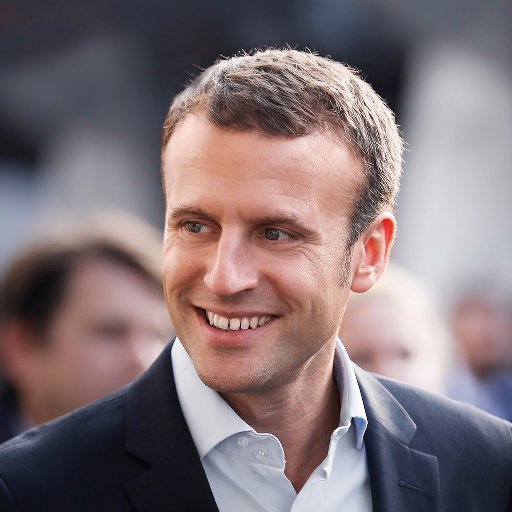French disconnected with the past
Those who thought or hoped that France is a democracy, know better by now. In a two-stage process the French elected a new president, the liberal and pro-EU Emanuel Macron (39), who got only 24% of the votes in the first election round on April 23, where number two, the right-wing populist and anti-EU Marine Le Pen (49) got 21 %.
Other candidates were the left wing Jean Luc Mélenchon (20 %), the conservative François Villon (20%) and the socialist Benoit Hamon (7%). Seven other candidates shared the remaining seven percent of the votes.
The French system is such, that if no-one has a majority in the first round, the front runners go to a second round, in this case Emanuel Macron and Marine le Pen. In the second round on May 7, Emanuel Macron got 66% of the votes and Marine Le Pen 34%, so apparently a clear victory for Macron. However, the turn-out was only 75% and almost 11.5 % of the votes were invalid or blank. In the first round these figures were 78% and 2.6%.
Exit polls showed that many French only voted for Macron because they considered him the lesser of two evils, compared to the populist, anti-immigrant and anti-EU Marine Le Pen. The fact is that Macron is distrusted by many French, because he is a former tax official, banker, socialist politician and minister for economic affairs for the socialist president Hollande, who for years was his teacher and mentor. Last year, when Macron suddenly turned against president Hollande and announced his own candidacy for the presidency, French cartoonists depicted him as a Brutus who put a knife in Hollande’s back.
Macron has announced drastic reforms for the fossilized French economy and labor market, and he also wants major changes in the organization and policies of the EU. His first foreign trip, last week, was to Germany, where he met Angela Merkel, who is also a strong supporter of change within the EU.
Recent local elections in two of Germany’s largest federal states, showed a surprising support and increased popularity for Angela Merkel’s Christian-democratic CDU and the liberal FDP, while the social democratic party SDU lost dramatically. It seems that Angela Merkel has nothing to fear for the forthcoming national elections on September 24.
If the two major members of the EU, France and Germany, now join forces in a reform of the EU, something is about to happen, certainly after the British announced their exit and thus reduced their political influence to zero.
However, the new French president Macron has one weakness, but a serious one: he still lacks his own party for the parliamentary elections of next month. So he has only a very short time to organize that, or otherwise he might become a president without the necessary political support in parliament. This could seriously hamper his plans for France and the EU.
The recent elections in Europe, in Holland and France, and locally in Germany, all show a similar trend: a strong position for the centrist parties, the Christian democrats and the right wing liberal parties, but dramatic losses for the left wing social democrats. The undercurrent of populist and anti-EU parties is gaining popularity, but is not strong enough to pose a threat to the existing pro-EU parties. So in spite of the Brexit, the EU will remain, but there may be hopes for a less technocratic and more open and democratic Union.

René van Slooten is a leading ‘Poe researcher’, who theorizes that Poe’s final treatise, ‘Eureka’, a response to the philosophical and religious questions of his time, was a forerunner to Einstein’s theory of relativity. He was born in 1944 in The Netherlands. He studied chemical engineering and science history and worked in the food industry in Europe, Africa and Asia.The past years he works in the production of bio-fuels from organic waste materials, especially in developing countries. His interest in Edgar Allan Poe’s ‘Eureka’ started in 1982, when he found an antiquarian edition and read the scientific and philosophical ideas that were unheard of in 1848. He became a member of the international ‘Edgar Allan Poe Studies Association’ and his first article about ‘Eureka’ appeared in 1986 in a major Dutch magazine. Since then he published numerous articles, essays and letters on Poe and ‘Eureka’ in Dutch magazines and newspapers, but also in the international magazines ‘Nature’, ‘NewScientist’ and TIME. He published the first Dutch ‘Eureka’ translation (2003) and presented two papers on ‘Eureka’ at the international Poe conferences in Baltimore (2002) and Philadelphia (2010). His main interest in ‘Eureka’ is its history and acceptance in Europe and its influence on philosophy and science during the late 19th and early 20th centuries.

